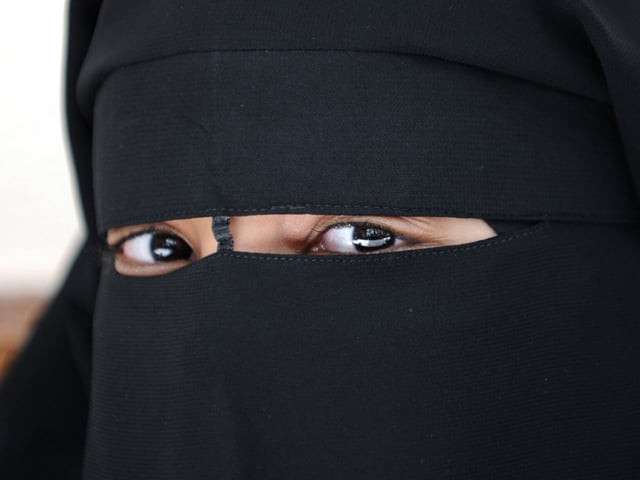French lawmakers to take final vote on full veil ban
French lawmakers take a final vote on a controversial bill banning face-covering veils in public spaces.

French lawmakers to take final vote on full veil ban
The bill makes no reference to Islam, but has been promoted by President Nicolas Sarkozy's government as a measure to protect Muslim women from being forced to wear full-face veils such as the burqa or the niqab.
The Senate vote follows one in France's National Assembly that passed a law to make wearing the garment in public illegal in July by 335 votes to one, and the upper house is also expected to approve the measure comfortably.
Some other European countries are mulling similar bans, but critics of the law in its proposed form believe that it will eventually be overturned by the judges of the Constitutional Council, France's highest legal body.
While Sarkozy's determination to ban the niqab and the burqa has won enough political support to carry it, opponents argue that it breaches French and European human rights legislation.
The bill defines public space very broadly, including not just government buildings and public transport, but all streets, markets and thoroughfares, private businesses and entertainment venues.
Similar laws are pending in Belgium, Spain and some Italian municipalities, but the ban is particularly sensitive in France, whose rundown city suburbs are home to Europe's biggest Muslim minority.
Critics say the law exploits a non-problem - only about 1,900 women among France's five to six million Muslims wear a veil - in a bid to pander to anti-immigration voters and to distract attention from France's economic woes.
Most French Muslims come from France's former colonies in North and West Africa, where wearing the veil is rare, rather than from the Arabian peninsula or Pakistan, where niqabs and burqas are a cultural tradition.
Some Muslim leaders say they support steps to discourage women from wearing the full veil, but that a law would unfairly stigmatise a vulnerable group.
Mindful that a law with a broad scope might be struck down by the European court of human rights, which protects religious freedoms, Sarkozy's own ruling party has asked for the text to be examined by the Constitutional Council.
Fines of 150 euros will be imposed on those caught wearing the veil, after a six-month grace period to allow time to educate women.
Men who force their wives or daughters to cover themselves for religious reasons face stiffer penalties of up to 30,000 euros and a one-year jail term.
Public support for ban
Meanwhile, the ban enjoys broad popular support. An international poll conducted in April and May by the Washington-based Pew Research Center found that more than eight in 10 French voters supported a ban.
The same mood prevailed in Germany, where 71 per cent backed a ban, in Britain, with 62 per cent, and Spain with 59. However in the US, most people were against the ban with 65 per cent disapproving.




1725099588-0/BeFunky-(41)1725099588-0-208x130.webp)














COMMENTS
Comments are moderated and generally will be posted if they are on-topic and not abusive.
For more information, please see our Comments FAQ